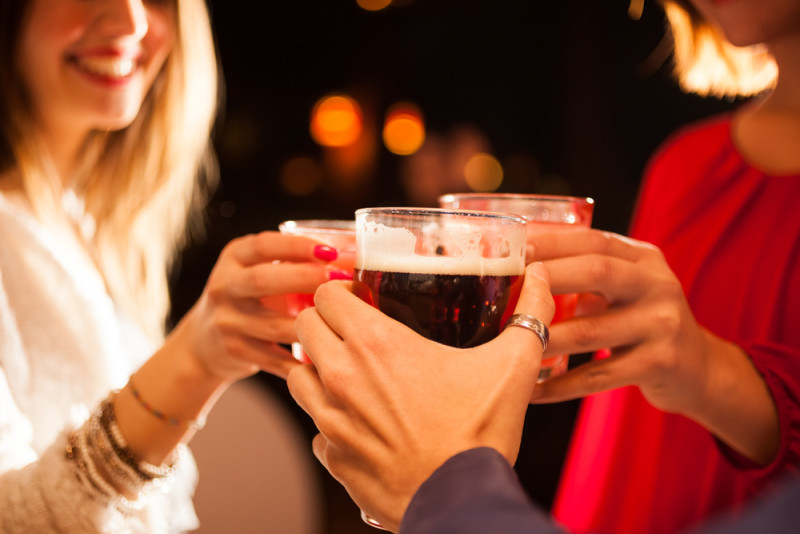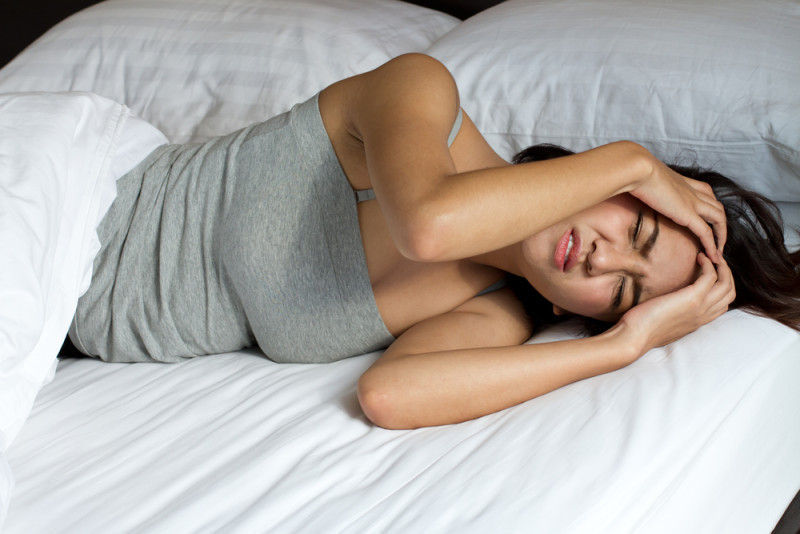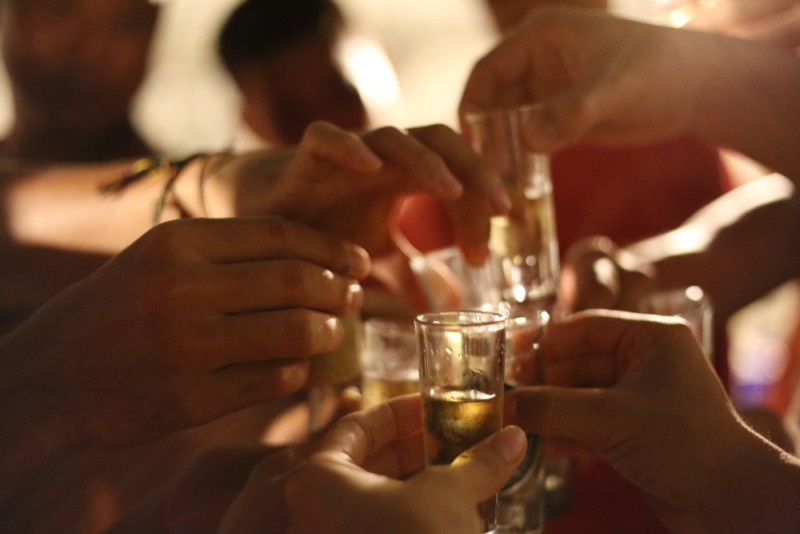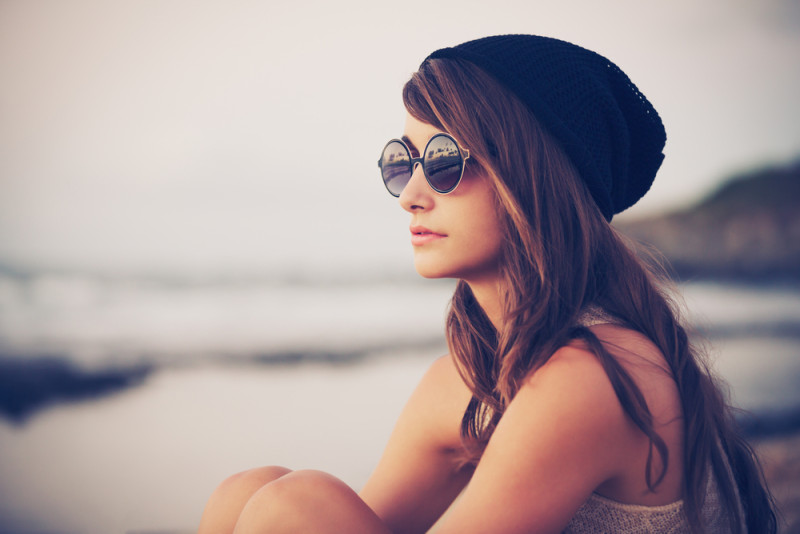In the past few weeks, you may have heard talk about “Dry January.” Maybe you know someone who participated, or maybe you even thought about participating yourself. If you aren’t familiar, Dry January is an organization where people sign up to swear off booze for the first month of the new year. Why would anyone do this? Well, past participants have reported losing weight, sleeping better, experiencing more energy and having clearer skin at the end of the 31 days. Plus, the money donated from those who participate goes to help Alcohol Concern, “the national charity dedicated to tackling the harm caused by alcohol to individuals, families and society.”
Alcohol is thought by many to be a social glue of sorts. What do holiday parties, weddings, family get-togethers, birthday parties, and nights out with friends have in common? They almost always involve alcohol, as does any social situation that has even the slightest potential to be awkward. After all, alcohol lowers your inhibitions, loosens your tongue, relaxes your nerves, and hey, it may even convince you to dance or sing karaoke. It can make for an easy night with constant conversation and some good laughs along the way.

It can also make for a nice hangover the next day, including dehydration, a pounding headache, dizziness, vomiting and the ever-famous I’m never drinking again mentality.

Think about the worst hangover you’ve ever had. Suddenly, Dry January doesn’t sound so bad, does it? What if you took it a step further, and removed alcohol from your life altogether? It seems that more and more people are jumping on the sober bandwagon. Dry January is the promise of just one month, but there are other organizations for those who have decided to give up alcohol entirely.
With all of the new sober activities popping up to replace after-work or weekend bar-hopping, we may, in fact, start to notice the slow decline of booze culture. Many people drink, not primarily because they enjoy drinking, but just because it is a social thing to do. Yet drinking isn’t the only social thing to do on the weekend anymore, and sober living is becoming something much more than a month-long fad. Most people who participate in Dry January are in it for the health benefits. So what are they?
If you stop drinking alcohol:
Within a few days
- You’ll have clearer skin. Alcohol decreases the body’s production of the antidieretic hormone, which helps the body reabsorb water. After a few days without alcohol, your skin will look and feel more hydrated and less swollen, and eczema or rosacea should improve.
- You’ll find yourself sleeping better. Alcohol makes you drowsy, but it also disrupts the quality of your sleep. Sleeping sans alcohol will allow you to get a better night’s sleep, which will lead to increased energy and concentration levels.
- Your liver will start to love you again, as it will no longer have to work double time to neutralize alcohol toxins.
Within a week or two:
- You’ll feel better! Alcohol is by nature a depressant. Without it, you’ll notice increased mental clarity and find yourself in better moods. Many people use alcohol to relax, but lots of alcohol over time actually makes the heart work much harder.
- You’ll have more money! Drinking can be a very expensive habit. Adding up what you spend on drinks for your home and out on the town can be a motivator in itself to lose the booze.
Within a month:
- You’ll lose weight. Alcohol has a sneaky way of increasing our calorie and sugar intake. One margarita may contain 300 calories or more, and most alcohol is loaded with sugar, which often stores as belly fat. You may find yourself fighting sugar cravings, but you’ll most likely find your jeans loosening up a little.
- You’ll be more productive. Your month’s worth of a good night sleep will leave your brain and body feeling well rested, producing heightened productivity and a brighter mood.
- Your senses will be heightened. Alcohol can dull your senses. You might think you had great sex while you were drunk, but being sober will ensure that your sexual organs are extra sensitive.
- You’ll become more fertile. For women who are trying to become pregnant, you have a better chance of conceiving if you give your body a break from alcohol.
In addition to clearer skin, more money in your savings account, a better night’s sleep, and weight loss, cutting alcohol out of your diet can lower your cholesterol, allow your body to regulate your blood sugar correctly, boost your immune system and enhance your brain power. So imagine giving up alcohol for two months, six months, a year, a lifetime. Imagine how that could change your life.

The fact that more people are choosing to live a conscious and sober life may be an indicator that we are seeking out deeper, more meaningful connections with others, or perhaps that we crave a deeper, more meaningful connection to ourselves. Activities to celebrate being sober are popping up all over the country, one after another.
Daybreaker is a pre-workday dance party that promises to start your day off unlike anything else. It did not take long for the action-packed sunrise dance sessions to catch on. They have been known to involve jellyfish puppets, thumping remixes, strobe lights, and even glitter. Daybreaker dance parties are nothing short of a morning rave, to get people up and moving and energized for their day (all while staying sober, of course).
MDFL is NYC’s first boutique meditation studio that “exists to enable humans to feel good.” They offer a variety of classes with different techniques, and when classes are not in session, they encourage people to use their space for self-guided practice. The place has already gained a reputation for being a calm, sober place to hang out.
The Uplift Project combines “ancient wisdom with modern knowledge to create transformative experiences that revitalize and restore balance.” They offer a safe haven from today’s fast-paced world — a place to blow off steam and reconnect, without drowning sorrows in alcohol.
The Shine, started by meditation teacher Light Watkins in 2014, is an inspiring variety show that uses soulful music, film, grassroots philanthropy, and storytelling to inspire the audience to do more, give more, and be more. Watkins said he started The Shine because he wanted to be more social, but he was not attracted to the bar scene. “I felt that it was hard to make meaningful connections with people who are buzzed,” he explained. “You’re not really meeting them, but rather the slightly to heavily intoxicated version of them, which may be uninhibited and fun, but it’s not real.”

Light Watkins gave up social drinking 20 years ago after realizing it never made him feel better but was constantly making him feel worse. “I wanted to show up in life more authentically, so there was no room for alcohol in that equation,” he said. Today, The Shine is attracting around 300 people a month for its sober social events.
For now, restaurants will still have happy hours, liquor stores will still be busy on weekends, and bar crawls will still exist with those wanting to participate for a t-shirt to show off their drinking abilities. Whether or not to drink alcohol is a personal choice, but just know that there are plenty of other ways to be social, have fun and feel connected than to go heavy on the booze. Sobriety seems to be climbing the ladder as one of the top ways to live a healthier, more fulfilling life. Just something to think about.
This group of people participated in Dry January.
Listen to their reasons why in the video below!
h/t: women’s health


